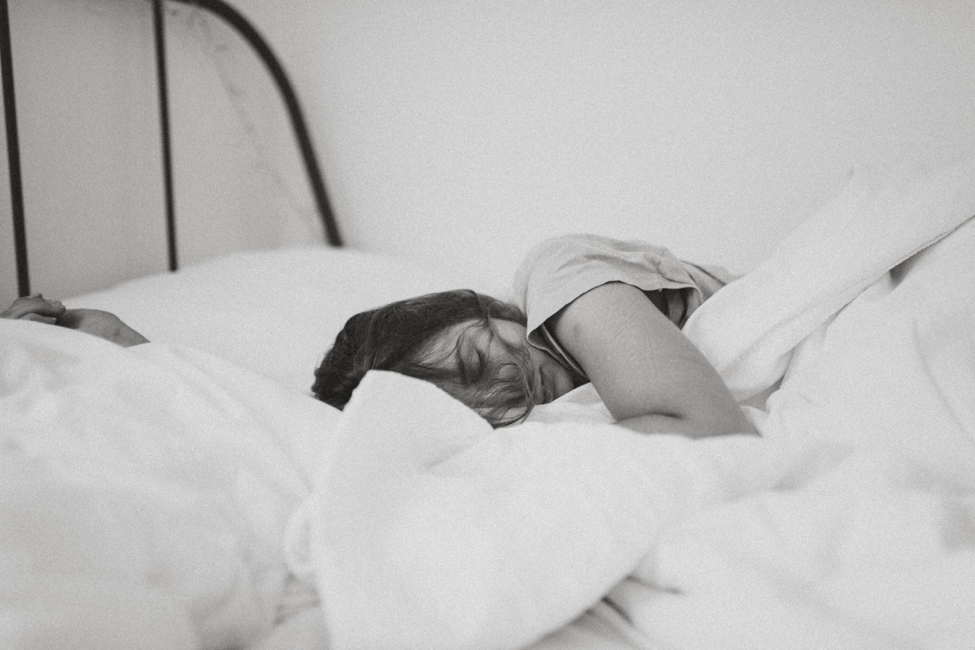Coping With Grief
Sleep Deprivation After a Loss – Changes to Make for Better Sleep
Photo by Kinga Cichewicz on Unsplash
The loss of a partner or close family member can lead to severe symptoms of grief. While everyone experiences death differently, many experience sleep disturbances after a loss. Sleep deprivation can be a slippery slope. After a sleepless night, you are likely to experience emotional instability, chronic stress, and problems with cognition. You may notice decreased productivity as well as an appetite for unhealthy foods, spurring on feelings of anxiety which disrupt your circadian rhythm even further, thereby continuing the destructive insomnia cycle.
Clean Out Your Home
A cluttered home leads to a cluttered, anxious mind. Cleaning out your home can help reset the vibe in your environment so you’re better able to relax. If your loved one lived with you, there may be some hesitation when it comes to “getting rid” of their belongings. If you’re not emotionally ready to let go of their stuff just yet, you can still create a cleaner, more serene environment at home by simply placing their belongings in an offsite storage unit. You can give yourself a year with the things in storage before you revisit the topic and decide what to do with it all. Note that a storage unit won’t set you back too much– the overall price of self-storage in West Covina averaged $173.38 per unit over the past six months.
Start an Exercise Regimen
If there is ever a good time to start exercising, it’s right after a major loss. Exercising isn’t just great for your waistline. It’s beneficial for your mental health as well. Exercise releases neurotransmitters and hormones, including dopamine, serotonin, and endorphins. These happy chemicals can promote feelings of well-being, alleviate anxiety, and even reduce pain. While exercise is no substitute for proper medical attention for mental illnesses, it can still provide a temporary mood boost when you’re feeling down and is a healthy addition to your grief recovery plan.
Furthermore, exercise is essential for getting a good night’s sleep. Many of us live sedentary lives, as we sit behind desks and steering wheels all day long. With these lifestyles, we don’t burn enough energy to genuinely feel tired at night. Working out in the early evening can also provide your body with a spike in body temperature. As you cool down over the remaining hours of your night, your body starts to feel drowsy and ready for bed.
Establish a Calming Bedtime Routine
A good sleep routine signals to your body that it’s time to switch phases and start preparing for sleep. First thing first, turn off any non-essential lights, especially electronics that emit melatonin-inhibiting blue light waves. It also may help to lower the temperature in your home. Your body’s temperature dips as it drifts off to sleep, and turning the thermostat down a few degrees can give it the push it needs to get the process started– your room should be somewhere between 60 and 67 degrees F.
If you’re feeling anxious or plagued by your thoughts, spend some time writing them down. That may not dispel them completely, but it will give you a sense of agency over your worries. Before bed, do some soothing activities that help you fall asleep. Try reading, listening to music, or using guided meditation to fall asleep. If you’re physically uncomfortable in bed, treat yourself to soft new bedding or a supportive pillow– some of the highest-rated ones will only set you back about $30. Most importantly, work toward falling asleep at the same time each night and waking up at the same hour each morning. The more consistent you are, the better able your body is at reacting to its natural circadian rhythm.
*****
Grief manifests differently in all of us, but it’s not uncommon to experience sleep deprivation. However, letting insomnia go unchecked can lead to serious mental and physical health problems down the road. To enable sleep during this difficult time, reduce anxiety in the home by decluttering and getting rid of things you don’t need. Start exercising both for your mental well-being and its sleep-inducing benefits. Finally, establish a steady bedtime routine that helps your body transition to sleep with ease.
-Sara Bailey, TheWidow.net

